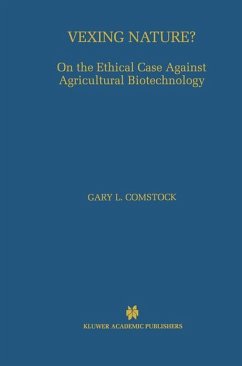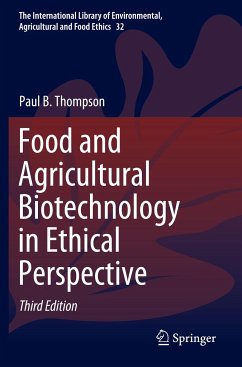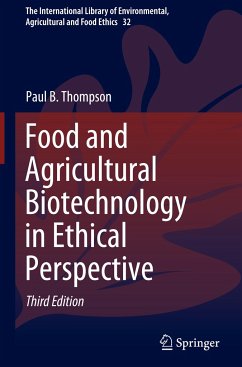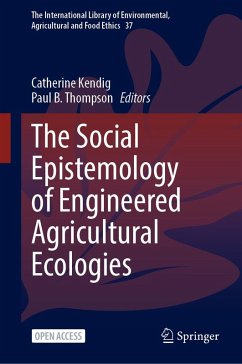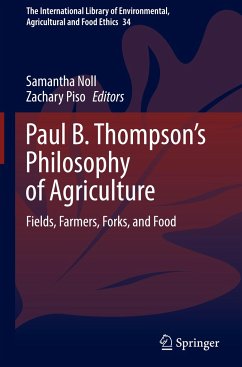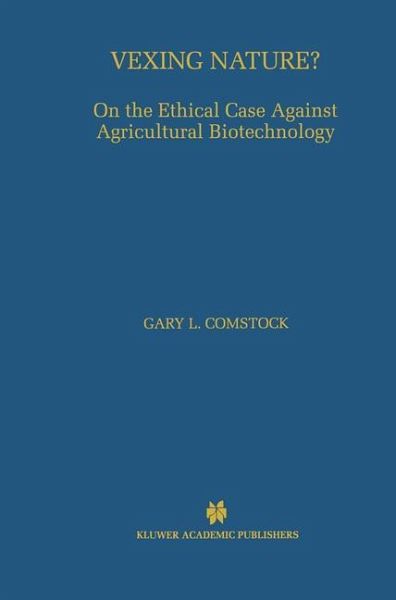
Vexing Nature?
On the Ethical Case Against Agricultural Biotechnology
Versandkostenfrei!
Versandfertig in 6-10 Tagen
113,99 €
inkl. MwSt.
Weitere Ausgaben:

PAYBACK Punkte
57 °P sammeln!
Agricultural biotechnology refers to a diverse set of industrial techniques used to produce genetically modified foods. Genetically modified (GM) foods are foods manipulated at the molecular level to enhance their value to farmers and consumers. This book is a collection of essays on the ethical dimensions of ag biotech. The essays were written over a dozen years, beginning in 1988. When I began to reflect on the subject, ag biotech was an exotic, untested, technology. Today, in the first year of the millenium, the vast majority of consumers in the United States have taken a bite of the apple....
Agricultural biotechnology refers to a diverse set of industrial techniques used to produce genetically modified foods. Genetically modified (GM) foods are foods manipulated at the molecular level to enhance their value to farmers and consumers. This book is a collection of essays on the ethical dimensions of ag biotech. The essays were written over a dozen years, beginning in 1988. When I began to reflect on the subject, ag biotech was an exotic, untested, technology. Today, in the first year of the millenium, the vast majority of consumers in the United States have taken a bite of the apple. Milk produced by cows injected with a GM protein called recombinant bovine growth hormone (bGH), is found, unlabelled, on grocery shelves throughout the US. In 1999, half of the soybeans and cotton harvested in the US were GM varieties. Billions of dollars of public and private monies are being invested annually in biotech research, and commercial sales now reach into the tens of billions of dollars each year. I Whereas ag biotech once promised to change American agriculture, it now is in the process of doing so.





